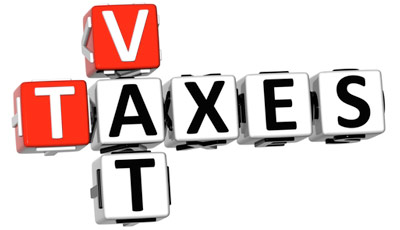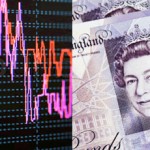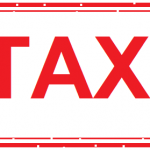How would VAT be affected if no deal is made following Brexit negotiations?

With continued backlash in parliament over the Chequers deal, the UK are falling behind in their negotiations for exiting the European Union on 29 March 2019.
While HMRC argues that the likelihood of the UK leaving the EU without a deal is slim, they must prepare for all eventualities, including a ‘no deal’ Brexit.
The government department made it clear that leaving without an agreement will not be beneficial for anyone and “remains unlikely”.
Theresa May downplayed it as she spoke to reporters before her three-day South Africa trip, claiming it wouldn’t be so bad.
The Prime Minister said: “Look at what the director general of the World Trade Organisation has said. He has said about the no-deal situation that it will not be a walk in the park, but it wouldn’t be the end of the world.”
May remains calm despite no agreement looking more likely following backlash over the release of her draft deal at Chequers last month.
A ‘no deal’ Brexit essentially means no formal agreement will have been made by the UK and EU when the negotiating phase comes to an end next March.
The 21-month transitionary period from 29 March would be scrapped and the exit would be immediate.
In this eventuality, the UK would have no legal obligations to pay the £39 billion divorce bill to the EU, but this would leave a significant gap in the EU, not to mention sour relations.
Michael Izza, chief executive of the ICAEW, said: “I remain hopeful that the UK and the EU reach an agreement, but it is critical that the UK has contingency plans to maintain as much stability as possible, whatever the outcome of the negotiations.”
How would a no deal Brexit affect VAT for businesses?
HMRC have released official documentation detailing how a no deal Brexit next year would impact VAT rules for UK businesses trading with EU countries. The government department have spent the last two years preparing for all scenarios.
The paper said: “This is contingency planning for a scenario that the UK government does not expect to happen, but people should be reassured that the government is taking a responsible approach.”
Even though most businesses will see no change to VAT rules, it is important for them to understand how a no deal result would affect them and start to take mitigation steps. This government notice provides early planning on VAT to help businesses understand the potential impact of a no deal, and further details and actions will be released in due course.
The current rules state that VAT is charged on most goods and services sold within the UK and EU, and VAT is payable by businesses when they bring goods into the UK, even though rules differ depending on whether goods come from EU or non-EU countries.
Exemptions include goods exported by UK businesses to non-EU countries and EU businesses. They are zero-rated, meaning UK VAT is not charged at the point of sale. Any goods exported by UK businesses to EU consumers have either a UK or EU VAT charge, depending on the distance selling thresholds.
The UK will continue to have a VAT system after it leaves the EU next year and, even if no Brexit deal is reached, the government will aim to keep VAT procedures as close to how they look now as they can to provide continuity for businesses.
The paper highlights changes UK businesses must plan for if no deal is reached for when importing goods from and exporting goods to the EU, supplying services to the EU, and interacting with EU VAT IT systems, as outlined below.
Accounting for important VAT on goods imported into the UK – The government will introduce postponed accounting for import VAT on goods brought into the UK.
UK VAT registered businesses will be able to account for import VAT on their VAT return rather than paying it on or after their goods arrive in the UK. This will apply to both EU and non-EU countries. Customs declarations and any other duties will still have to be paid and further detail on accounting and record keeping will later be released.
VAT on goods entering the UK as parcels sent by overseas businesses – VAT will be payable on goods meeting this criterion.
Low Value Consignment Relief (LVCR) won’t be extended to goods entering the UK from the EU, including parcels. For parcels valued up to and including £135, a technology-based solution will allow VAT to be collected from the overseas business selling these goods to the UK. For goods worth more than £135 sent to the UK from an EU country as parcels, VAT will continue to be collected from UK recipients in the same way as the current procedure for parcels from non-EU countries.
VAT on vehicles imported into the UK – Businesses must continue to notify HMRC about vehicles brought into the UK from abroad as they do now.
This will still be done through the Notification of Vehicle Arrival Procedures (NOVA) system, which also ensures VAT is correctly paid on imported vehicles. Import VAT will be due on vehicles brought into the UK from EU member states after next March.
UK businesses exporting goods to EU consumers – Distance selling arrangements will no longer apply to UK businesses and UK businesses will be able to zero rate (not charge VAT at the point of sale) on sales of goods to EU consumers.
Current EU rules mean EU member states will treat goods that enter the EU the same as goods entering from non-EU countries – import VAT and customs duties will be due when they arrive.
UK businesses exporting goods to EU businesses – VAT registered UK businesses will continue to be able to zero-rate sales to EU businesses but will not need to complete EC sales lists.
As current EU rules say, EU member states will treat goods coming into the EU from the UK in the same way as those entering from non-EU countries with associated import VAT and customs duties due when goods arrive in.
UK businesses selling their own goods in an EU Member State to customers in that country – The UK will be able to carry on selling goods they have stored in an EU member state to customers in the EU as is the case for the rest of the world.
UK businesses will need to register for VAT in any EU member state where sales take place to account for the VAT due in those countries.
Place of supply rules for UK businesses supplying services into the EU – The main VAT ‘place of supply’ rules will remain the same for UK businesses. These rules determine the country in which you need to charge and account for VAT. The OECD currently sets out these guidelines.
UK businesses that access EU-wide VAT IT systems – In the event of a no deal agreement, the UK will cease to be part of EU-wide VAT IT systems including the VAT Mini One Stop Shop for digital services.
UK businesses will still be able to claim VAT refunds from EU member states but will need to use the existing process for non-EU businesses – they will not be able to use the EU VAT refund system. They will also be able to continue using the EU VAT number validation service to check the validity of EU business VAT registration numbers.
How does this affect accountancy industry?
HMRC’s no deal paper doesn’t tell us anything new or surprising, but instead highlights the fact that for UK businesses, trading with the EU will become more complicated and expensive.
HMRC will continue to provide specific advice and guidance to UK businesses so they can prepare for any scenario. It reminds businesses that this is only guidance and they should seek professional advice to help them meet their specific interests. Ultimately, if the UK does leave the EU without a deal next March, obligations they will need to meet to continue trading are much the same as those that apply to non-EU countries.
Brian Palmer, tax policy adviser at the Association of Accounting Technicians, reacted to the government’s paper.
He highlighted the fact that all businesses, so including accountancy firms, will have to apply the same customs rules to goods moving between the EU and UK as they would for the rest of the world. Postponed accounting for import VAT will also be applied on goods coming into the UK.
Palmer said: “As has been made clear from this paper, the Government’s priority in the event of a no-deal Brexit is that trade with our European neighbours be protected where possible. This is with the aim of maintain confidence in Britain and our products & services from overseas, in an ultimate attempt to try and stave off recession.
“VAT is a complex area that splits opinion. Reducing the threshold to (say) the personal allowance could make for a simple solution, but would also result in additional burdens for small businesses, many of whom work to keep their turnover under the threshold.”
Despite the UK welcoming more information, individuals and businesses alike should not get complacent about the knowledge they will need to brush up on and maintain as Brexit edges closer.
David Wilson, VAT director at RSM, said: “To comprehend the full administrative and bureaucratic burden of treating EU trade as ‘imports and exports’, the VAT paper cannot be read in isolation and must be considered in conjunction with other guidance notes.
“There is little doubt that a ‘no deal’ scenario will have significant consequences for businesses, consumers and HMRC. Whether the publication of the ‘no deal’ technical notices will help or hinder the understanding of these consequences remains to be seen.”
Whatever the outcome of the negotiations, the complexity surrounding Britain’s exit from the EU even further emphasises the changing role of the accountant. Accountants are occupying the role of trusted adviser when it comes to new regulations like GDPR and Making Tax Digital, and Brexit is no different. Accountants should keep abreast of changes and issues that arise, ready to advise their clients on the best possible way to deal with them.





























